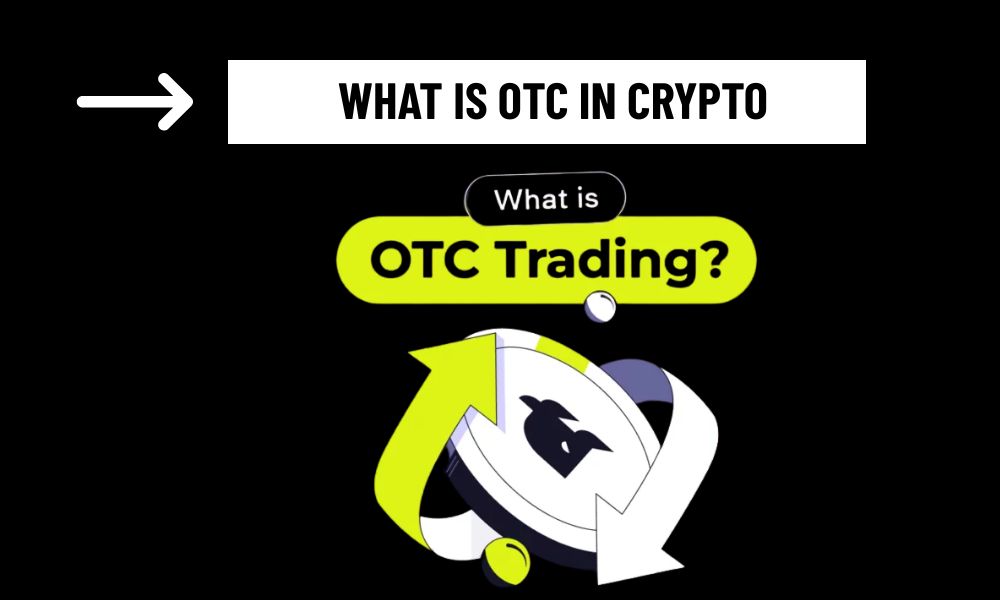Wondering what is OTC in crypto? Over-the-counter (OTC) trading enables direct, private cryptocurrency exchanges, offering institutional investors and high-net-worth traders a discreet, high-liquidity solution for large transactions without affecting market prices.
What is OTC in Crypto?
What is OTC in crypto? OTC, or over-the-counter trading, involves direct cryptocurrency transactions between two parties, conducted outside the public order books of exchanges like Coinbase or Bitfinex. Unlike exchange trading, where orders are visible and can trigger price volatility, OTC trading is facilitated by specialized desks that provide deep liquidity and customized pricing. This approach is tailored for large-scale traders, such as institutions, crypto whales, and businesses, seeking to execute significant trades with minimal market impact.

The Mechanics of OTC Crypto Trading
To answer what is OTC in crypto, consider its operational process:
- Engaging an OTC Desk: Traders contact a desk, specifying the cryptocurrency (e.g., Ethereum, XRP) and trade volume. KYC and AML verification ensures compliance.
- Customized Quoting: The desk provides a quote based on market conditions, sourced from liquidity providers or partner exchanges. Negotiation allows for tailored terms.
- Trade Execution: The desk sources assets privately, often through secure escrow or custody solutions, ensuring a smooth transaction.
- Settlement and Follow-Up: Trades settle via fiat, stablecoins, or crypto, with detailed records provided for compliance and future reference.
This private, flexible process defines what is OTC in crypto for high-stakes trading.
Why Opt for OTC Crypto Trading?
The benefits of what is OTC in crypto make it attractive for specific use cases:
- Confidentiality: OTC trades avoid public order books, protecting sensitive deals from market speculation.
- Stable Pricing: Large exchange trades can cause slippage; OTC locks in prices to prevent volatility.
- Deep Liquidity: OTC desks access extensive liquidity networks, filling large orders efficiently.
- Personalized Service: Traders benefit from bespoke terms, including flexible settlement options like bank transfers or USDC.
- Access to Niche Assets: OTC platforms often offer tokens unavailable on public exchanges, expanding investment options.
Potential Risks
Understanding what is OTC in crypto requires acknowledging its challenges:
- Counterparty Exposure: Direct trades increase the risk of fraud, necessitating trusted OTC providers.
- Regulatory Uncertainty: OTC markets are less regulated, posing potential legal risks in some regions.
- Cost Implications: Spreads or fees may be higher than exchange trading, depending on the desk.
- Opaque Pricing: Without public order books, traders must verify quotes to ensure fairness.

Who Uses OTC Crypto Trading?
The question what is OTC in crypto often points to its key users:
- Institutional Players: Funds and investment firms use OTC to manage large crypto portfolios discreetly.
- Wealthy Individuals: HNWIs leverage OTC for private, high-value transactions.
- Crypto Miners: Miners convert large crypto holdings to fiat via OTC to avoid market disruption.
- Corporate Treasuries: Companies like MicroStrategy use OTC to acquire Bitcoin for treasury reserves.
The Outlook for OTC Crypto Trading
As institutional interest in crypto grows, what is OTC in crypto gains prominence. In 2024, OTC trading volume rose 95%, fueled by Bitcoin ETF launches and corporate adoption, per industry data. Platforms like Coinbase Prime and Bitfinex OTC are enhancing compliance and security, making OTC a trusted channel for high-volume trading. As the market matures, OTC trading will remain integral to the crypto ecosystem, offering privacy and efficiency for large-scale transactions.
